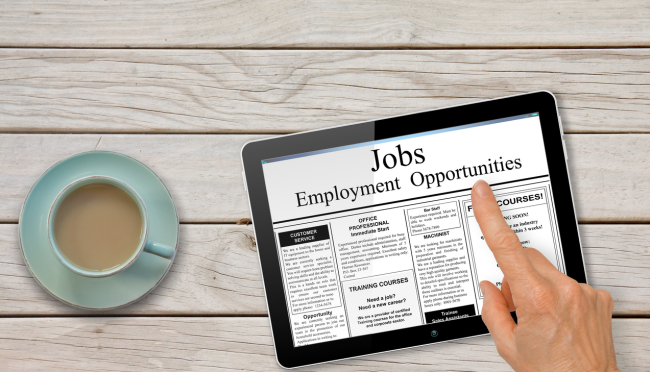Employment →
→

- 01 Jun 2023
- HBS Case
A Nike Executive Hid His Criminal Past to Turn His Life Around. What If He Didn't Have To?
Larry Miller committed murder as a teenager, but earned a college degree while serving time and set out to start a new life. Still, he had to conceal his record to get a job that would ultimately take him to the heights of sports marketing. A case study by Francesca Gino, Hise Gibson, and Frances Frei shows the barriers that formerly incarcerated Black men are up against and the potential talent they could bring to business.

- 16 May 2023
- HBS Case
How KKR Got More by Giving Ownership to the Factory Floor: ‘My Kids Are Going to College!’
KKR turned around a struggling door company and sold it for 10 times its investment—giving factory workers a life-changing cut of the returns. A case study by Ethan Rouen and Dennis Campbell offers lessons for companies trying to instill an owner's mindset in employees.

- 05 May 2022
- HBS Case
College Degrees: The Job Requirement Companies Seek, but Don't Really Need
Hiring platforms routinely screen out experienced candidates simply because they aren't college graduates. With millions of openings going unfilled, Boris Groysberg says that companies should look for skills instead of degrees.

- 22 Apr 2022
- Research & Ideas
Companies Can Expand Their Talent Pool by Giving Ex-Convicts a Second Chance
People with criminal convictions often have trouble finding work and face double-digit unemployment rates. Yet employers would be more willing to hire them under certain conditions, says research by Zoë Cullen. Open for comment; 0 Comments.

- 24 Mar 2022
- Research & Ideas
Why Cutting Jobless Aid Isn't the Answer to Worker Shortages
Many policymakers thought that halting COVID-related unemployment insurance would be a "silver bullet" to addressing worker shortages. In reality, cutting aid undermined consumer spending, says research by Raymond Kluender. Open for comment; 0 Comments.

- 17 Feb 2020
- Working Paper Summaries
The Impact of Technology and Trade on Migration: Evidence from the US
Labor mobility can re-equilibrate local labor markets after an economic shock. Both robot adoption and Chinese import competition between 1990 and 2015 caused large declines in manufacturing employment across US local labor markets (commuting zones, CZs). However, only robots were associated with a decline in CZ population, which resulted from reduced in-migration rather than by increased out-migration.

- 18 Dec 2017
- Op-Ed
Why Employers Must Stop Requiring College Degrees For Middle-Skill Jobs
Employers are guilty of "degree inflation," requiring lofty academic bona fides for jobs that don't really need them. Joseph Fuller says the practice is hurting American competitiveness. Open for comment; 0 Comments.
- 01 Feb 2017
- What Do You Think?
Is the Next Jobs Crisis Just Ahead?
SUMMING UP A looming service sector jobs crisis would dwarf anything we’ve seen in manufacturing, many of Jim Heskett's readers agree. But what can be done about it? Open for comment; 0 Comments.

- 31 May 2016
- Working Paper Summaries
Who Gets Hired? The Importance of Finding an Open Slot
A worker’s skills alone does not determine the job in which they are hired—or indeed, whether the worker is hired at all. The existence of slots or job positions means that even qualified workers may not be hired or may not be assigned to the job for which they are best suited when there is a superior applicant for that position.
- 12 Feb 2016
- Op-Ed
The Real Jobs Tragedy in the US: We've Lost the Skills
Upgrading domestic skills is far more relevant to the future of American workers than potential job losses through expanded trade with other Pacific-rim nations, say Joe Fuller and Matt Sigelman. Open for comment; 0 Comments.
- 09 Nov 2015
- Research & Ideas
These Employers Pay Higher Salaries than Necessary
Some employers using online freelance marketplaces for the first time pay more than they have to for workers. Why? An information imbalance that job seekers can exploit, as explained in research by professor Christopher T. Stanton. Open for comment; 0 Comments.
- 29 Sep 2015
- Research & Ideas
Work 3.0: Redefining Jobs and Companies in the Uber Age
Companies like HourlyNerd and Lyft are redefining the job marketplace—but government has not caught up to the shift. Mess this up and we’ll stifle a major driver of innovation, business creation, and jobs, argues Andrei Hagiu. Open for comment; 0 Comments.
- 28 Mar 2012
- What Do You Think?
Are Factory Jobs Important to the Economy?
Summing Up: The manufacturing field is key to a strong economy, but a renewed focus on the industry will not necessarily lead to significant job growth, Jim Heskett's readers say. What do you think? Closed for comment; 0 Comments.

Why Progress on Immigration Might Soften Labor Pains
Long-term labor shortages continue to stoke debates about immigration policy in the United States. We asked Harvard Business School faculty members to discuss what's at stake for companies facing talent needs, and the potential scenarios on the horizon.